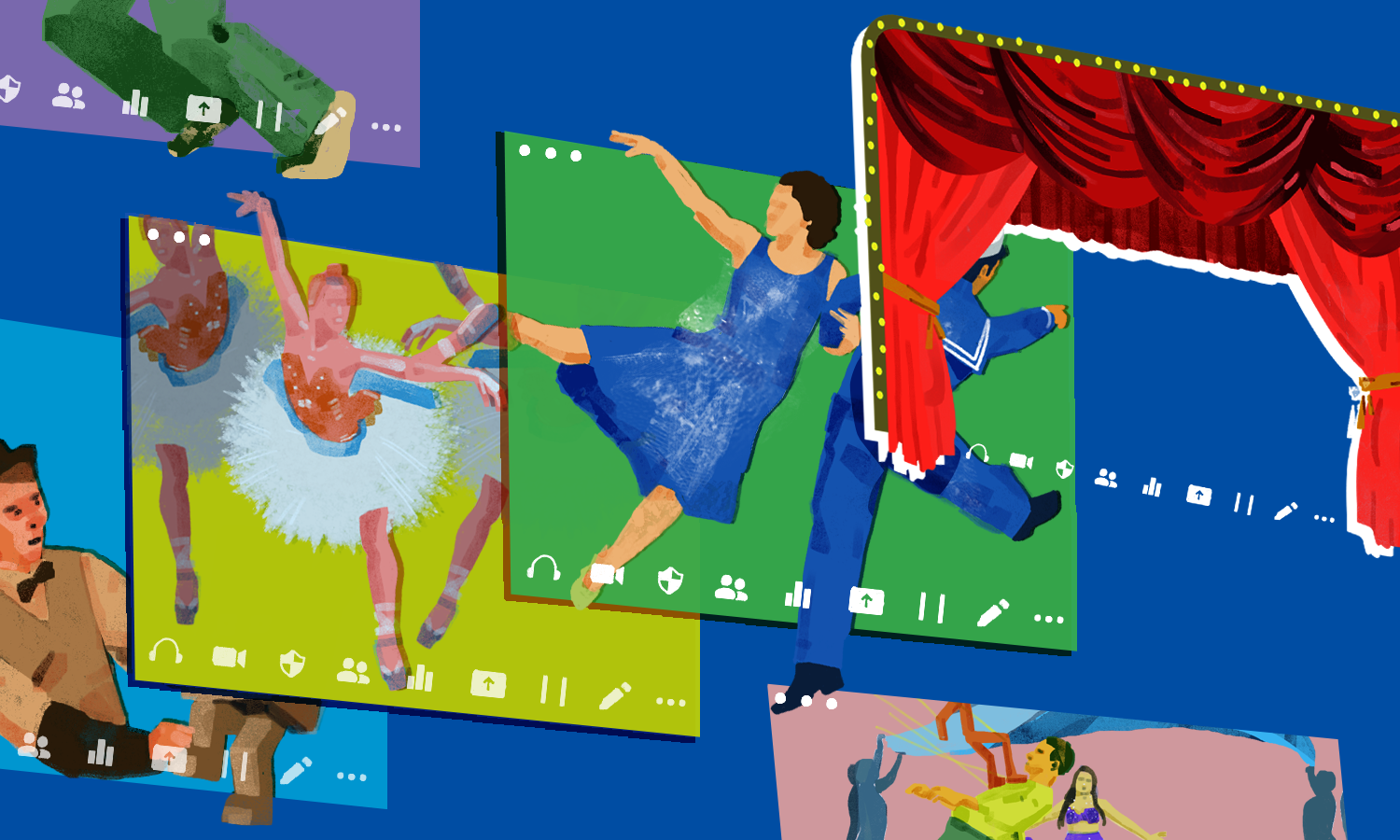Community, Leadership, Experimentation, Diversity, & Education
Pittsburgh Arts, Regional Theatre, New Work, Producing, Copyright, Labor Unions,
New Products, Coping Skills, J-O-Bs...
Theatre industry news, University & School of Drama Announcements, plus occasional course support for
Carnegie Mellon School of Drama Faculty, Staff, Students, and Alumni.
CMU School of Drama
Friday, February 19, 2021
The Technological Theatre Experimenters
HowlRound Theatre Commons: At this very moment, the theatre industry is being thrust into a site-specific venue called the internet. Like any other site-specific process, the unconventional performance environment should inspire us to define what makes theatre theatre and celebrate how our form can adapt to any space it inhabits. This present moment places us in an exciting crossroad between former traditions and the emergence of technical and multi-platformed storytelling.
Subscribe to:
Post Comments (Atom)

3 comments:
Referring to the internet as a 'site-specific venue' is actually a take that I haven't heard before, but it makes a whole lot of sense. We were discussing this in my Intro to Sound Design class last week, that the dramaturgical and psychological experience of sitting down to watch a performance in front of your computer or tv screen is so incredibly different from traveling to sit in a theatre, and it's useless and counterproductive to approach the new online modalities of performance the same as you would an in person one. Historically, theatre moves a lot slower in its reactions to the world than other pieces of art, because of the fact that theatre needs an audience, and cannot just be commissioned and created by singular people. But digital theatre–whatever exactly that comes to mean–can be created much more freely, and its scope entirely dependent on the intentions of the creator.
I have been excited by the new advancements we are being forced to make in live entertainment during the pandemic. I have thought a lot about what happens when you take away one of the most crucial parts of performance: the space that it is happening in. Reading this article, I have a new appreciation for viewing the digital platform as "the space".
However, I am a little put off by the authors statement that "As theatre chooses to make films during the pandemic, we may incorrectly start viewing innovation as failure." Many theatre makers are not equipped for live streaming capabilities, and are barely scraping by without the resources to create a whole new way of viewing theatre, and thus resort to whatever they can do to keep afloat. For many companies, that is film. It is resourceful, and puts the theatre on the screen.
All that aside, I think the overall message that there are new opportunities to look for, is a good one. Theaters should play with this new technology, as they did with every other technology that has crossed the stage. I especially liked the statement "I do not believe we are in a purgatory until we return to in-person venues, but instead that we are on the precipice of incredible innovation." It is empowering to view this indefinite stand still as a call to innovate, as opposed to sit around and wait for the world to change again.
This article poses an interesting perspective on the idea of filming live theatre to be rereleased for streaming. This had not really occurred to me in the past year, and primarily through the release of the Hamilton film onto Disney Plus. However, after reading this essay, I absolutely see why filming shows for an asynchronous release is actually quite detrimental to the theatre industry. I had been so focused on the fact that with the release of filmed shows, not performed live, would make theatre much more accessible to the general public that I failed to realize not only why this was detrimental but also that there is another easy solution for accessibility: broadcast live performances. As mentioned in the essay, by publishing prerecorded shows, that opens the door to exactly what live theatre cannot do: editing. Part of the amazing spectacle that is theatre is its raw imperfection. If we let editing intrude into this imperfection, part of every live show, we begin to edge out of the world of theatre and into the world of cinema. Broadcasting live should not be an issue. Theatre is all about adaptability. Theatre can be performed in any venue at any time, so why can the world wide web be a live performance venue for us? It is merely another challenge we must adapt to.
Post a Comment